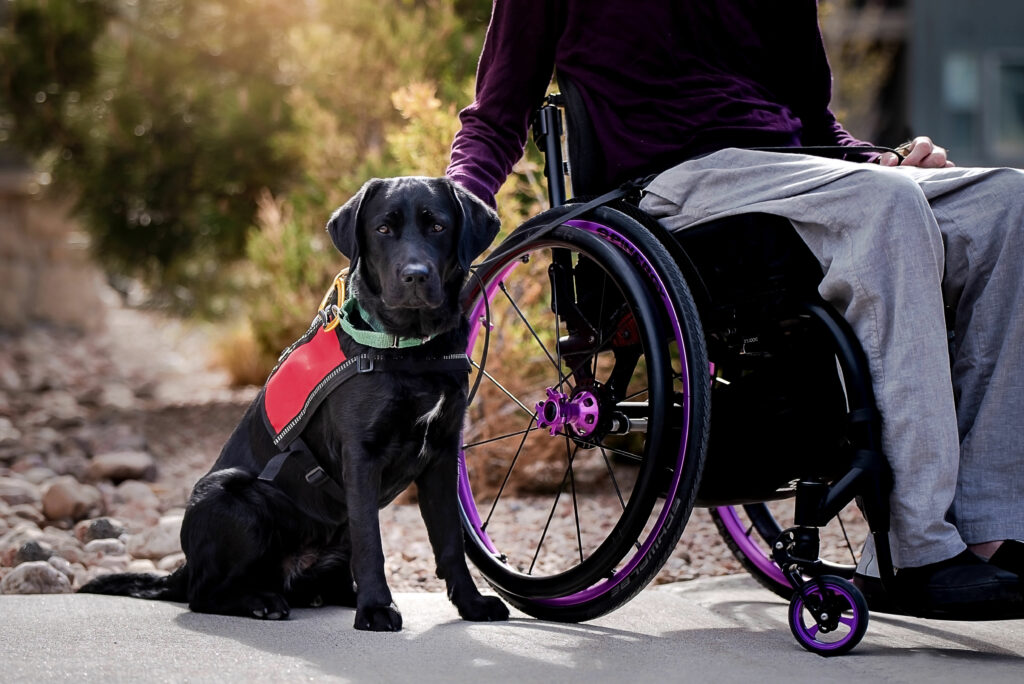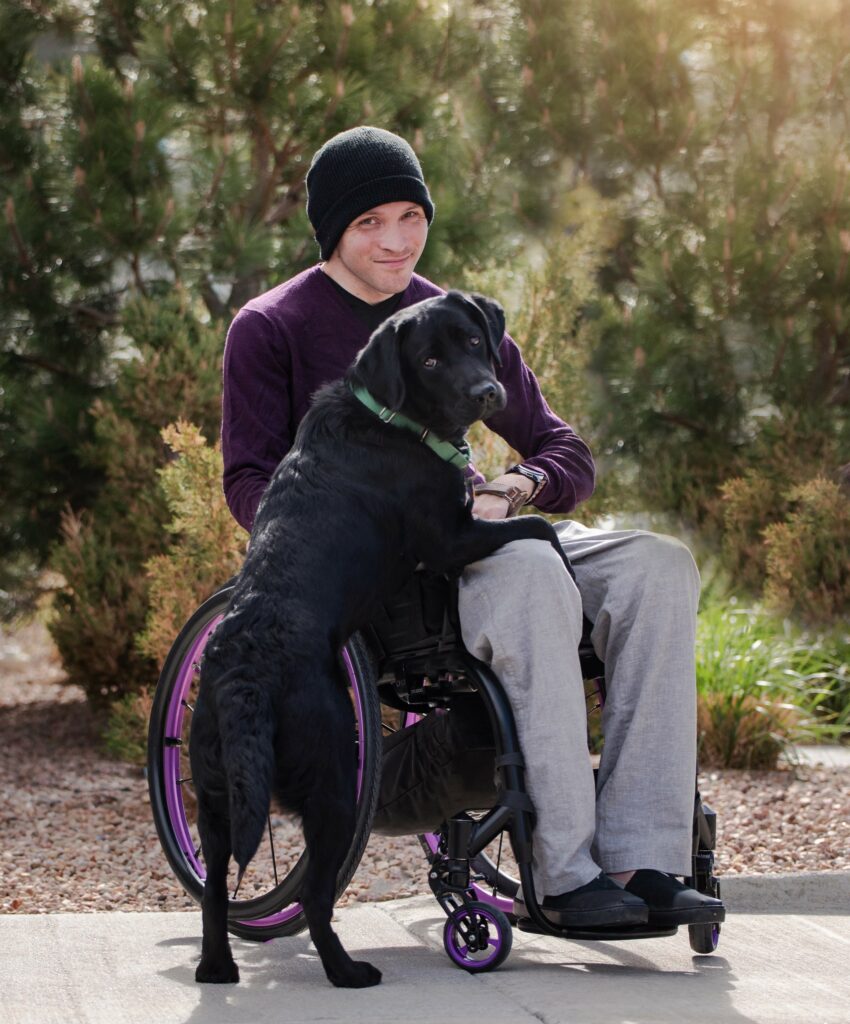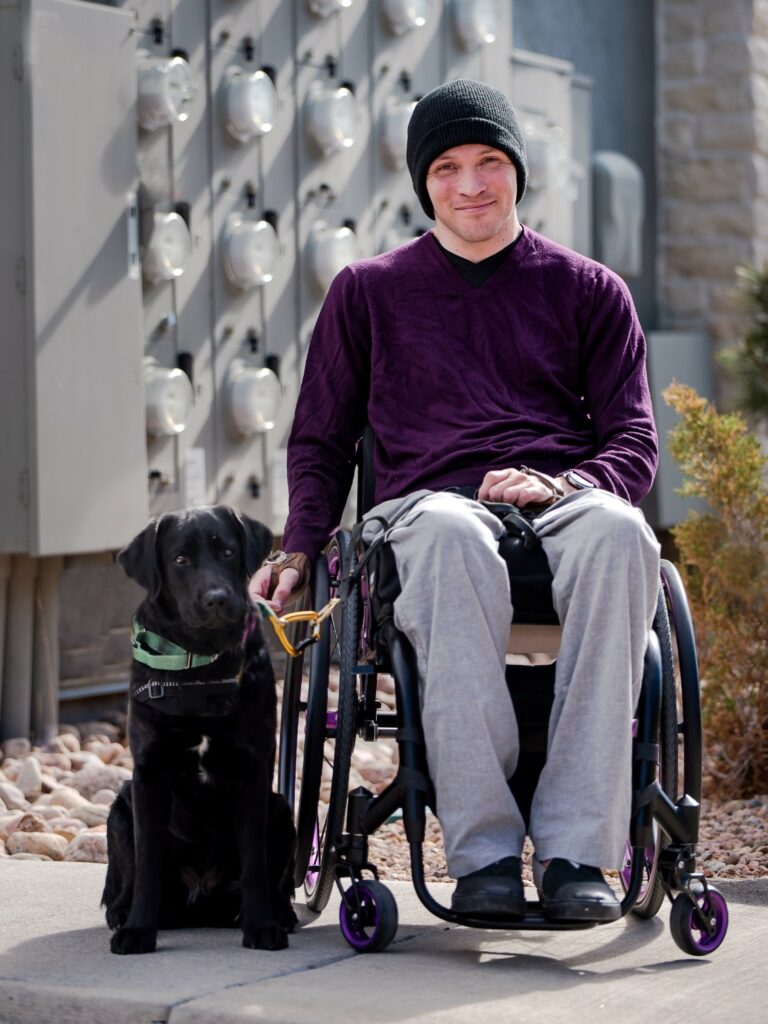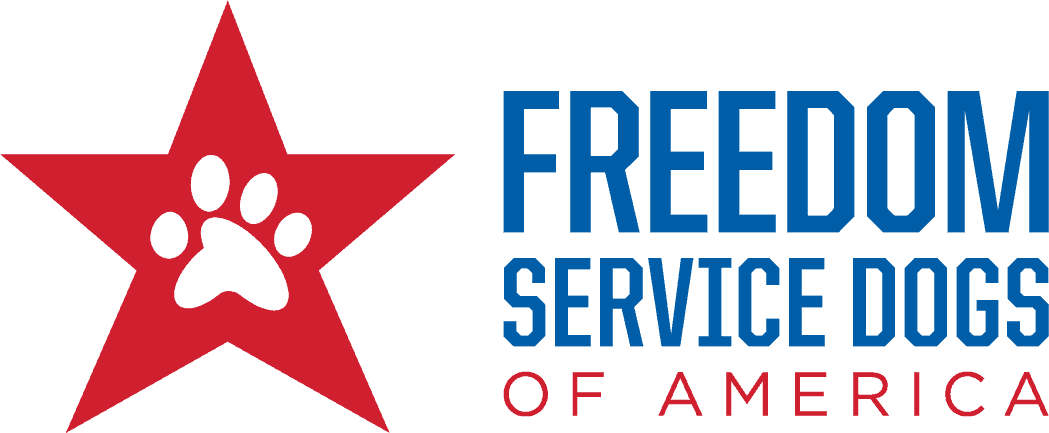Kenji & Bonus
Service dog extends independence for man with spinal cord injury

Six years ago, Kenji took a terrible fall when the bottom fell out of the hammock he was lying in near Boulder Creek in Colorado. After plummeting 15 feet to the rocks below, Kenji landed on the back of his head, breaking his C1, C2, C5, and C6 vertebrae. As a result of the accident, Kenji is fully paralyzed below his chest, with limited use of his arms and no hand function.
Following a difficult but remarkable recovery, Kenji resumed living independently, although his wheelchair use and lack of hand function make it difficult to perform many simple tasks. During his rehabilitation at Denver’s Craig Hospital, which specializes in spinal cord injuries, several service dogs and therapy dogs visited him, including one from FSD.
“At the time,” says Kenji, “the thought of caring for a dog was a bit overwhelming. But as I became more independent, I found myself in situations where I needed a bit of help picking something up or moving things, but I was alone and calling someone just to do that tiny task seemed ridiculous. The more time I spent alone, the more I realized that having that little bit of help and security would be really helpful.”

That “little bit of help and security” arrived in the furry form of an FSD service dog named Bonus, who was matched with Kenji in 2021. “I was really nervous at first that she would be totally disinterested in me,” recalls Kenji. “I was worried that, without hand function, I wouldn’t be able to pet her or interact with her. She was great, though, and her absolute fixation on food helped me get her attention and build a bond.”
Ongoing pain and discomfort sometimes made it difficult for Kenji to attend his two-week placement class at FSD’s training center, where clients bond with their dogs and practice tasks customized for each client’s unique needs. Eager to ensure that Kenji and Bonus were not left behind, members of FSD’s dog training and client services teams traveled to his apartment to complete the team’s training and administer their final test.
Kenji and Bonus graduated in October 2021, and today, Bonus assists Kenji by picking up objects, opening and closing doors, helping him put on her leash, and even trotting to the kitchen to put cans in the recycling bin. But beyond those specialized tasks, Bonus has returned a sense of possibility to Kenji’s life.
“With Bonus around, I have been able to further extend my independence by trying new things, knowing that if something doesn’t go perfectly, I have her there to get me out of most situations,” he says. “I have also just been generally happier with her in my life. It’s great having a non-human companion around to play with and interact with. And I’m very introverted, but she helps me feel more comfortable in social situations.”
Kenji works as a scientific editor for authors whose first language is not English but who hope to publish papers in English-language scientific journals. He loves reading nonfiction books (with a particular love of books on physics), as well as building or deconstructing things to get them to work better for him. “That is obviously more difficult now that I am paralyzed, but I definitely still try,” says Kenji.

Kenji admits that his initial thoughts about the amount of responsibility involved in caring for a service dog proved to be accurate. “One thing I found particularly difficult was adjusting to all the extra work of feeding her, training her, cleaning up after her, and taking her out multiple times a day. I was cautioned, but the reality of it was pretty exhausting. I considered giving up multiple times, but I knew it would get easier and I just needed to be patient and push through.”
Another challenge for Kenji has been the infrequent times when he says Bonus “just decides she doesn’t want to listen. She is so good 99.999% of the time, but sometimes there is something that interests her more than the treats I have. Things have gotten better as I have figured out little tricks to keep her attention. She’s not perfect, but neither am I. We are both slowly learning how to efficiently and effectively interact with each other.”
Contact Erin Conley at econley@

